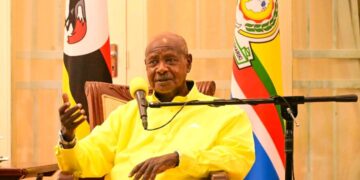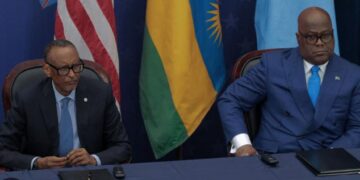The United States has announced a temporary suspension of visa issuance for Burundian nationals, effective June 9, 2025, citing repeated violations of visa regulations. The decision, part of a broader U.S. immigration policy under President Donald Trump’s administration, places Burundi among seven countries facing partial visa restrictions, with an additional 12 nations under a full travel ban.
The U.S. Embassy in Burundi issued a statement on X, emphasizing the collective responsibility of visa compliance: “Every Burundian who travels carries the hopes of their family and community. Respecting visa rules isn’t just personal, it is national. Sadly, due to repeated violations, U.S. visas for Burundians are temporarily banned. Together, we must protect future opportunities for all.” The statement underscores the impact of individual actions on national opportunities, noting that one person’s violation can affect an entire nation’s access to U.S. visas.
According to a 2024 U.S. Department of Homeland Security report, over 15 percent of Burundians overstayed their visas, a significant factor in the decision to impose the ban. The restrictions suspend the issuance of B-1, B-2, B-1/B-2 (business and tourism), F, M, and J (student and exchange visitor) visas, as well as all immigrant visas, with limited exceptions for immediate relatives of U.S. citizens, adoptions, and certain persecuted minorities.
The partial ban, enacted through a presidential proclamation on June 4, 2025, aims to address national security and public safety concerns by targeting countries with high visa overstay rates or inadequate cooperation on immigration matters, such as identity verification and deportations. The U.S. government has indicated that the restrictions could be lifted if Burundi improves its cooperation in these areas, though no specific timeline has been provided.
The Burundian government has not issued an official public response, but a source within the government, speaking anonymously, expressed hope that ongoing diplomatic talks could lead to the ban’s reversal. The African Union Commission has voiced concerns, urging the U.S. to implement such measures in a “balanced, evidence-based” manner, highlighting the broader diplomatic implications of the policy.
The visa ban is expected to impact hundreds of Burundians planning to travel for education, business, or tourism, as well as those seeking to reunite with family in the U.S. Posts on X reflect mixed sentiments, with some calling for reciprocal measures, such as Burundi suspending visas for U.S. citizens, while others emphasize the need for compliance to restore access.







